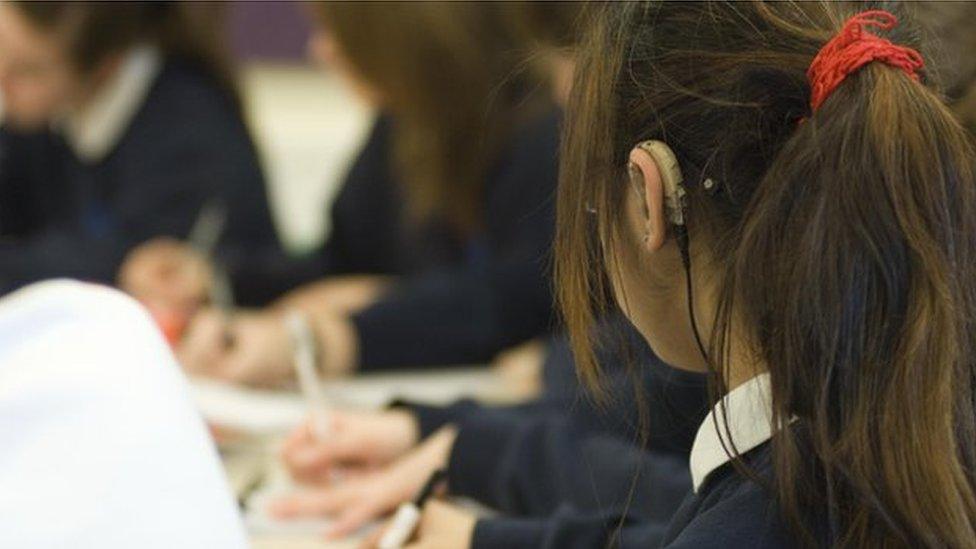It means he's not left out: How radio aids helped my deaf son
- Published
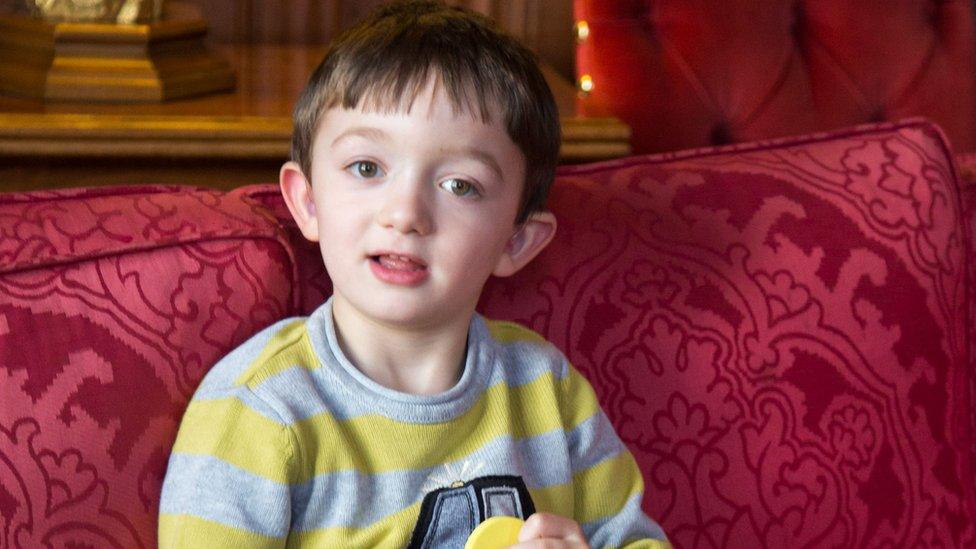
Five-year-old Levindinos can join in more now that he has radio aids
Having a radio aid gave five-year-old Levindinos Anastasiou, who has hearing loss, "a new lease of life", says his mum.
The aids have two parts - the child wears a receiver with their hearing aid and the person they want to hear wears a transmitter, filtering out background noise.
The National Deaf Children's Society says more councils should pay for them.
But the Local Government Association says funds are limited.
Levindinos was diagnosed with mild-to-moderate hearing loss in both ears when he was just a few months old.
But he didn't have access to a radio aid until he was four, and struggled at nursery.
"He used to get into trouble a lot at the nursery he went to," says his mum Sophie.
'Opportunities to learn'
Children with hearing loss may be given the £1,000 devices at school, but the aids are less commonly funded for home use - so families can use them in the car and outdoors, or when the children are doing homework or other activities.
The Anastasiou family lives in Leyton, east London. Their local authority does not fund home radio aids, so Sophie decided to pay for one herself.
She says it has made a real difference.
"He's had a new lease of life, and many more opportunities to learn.
"Levindinos can take part; he's not left out. It makes a real difference because without them, he always wants to be close to me to make sure he can hear what I am saying.
"With them, he can cycle with his friends ahead of me, without having to lag behind so I can support him."
She says it's unfair that not all deaf children have similar access.
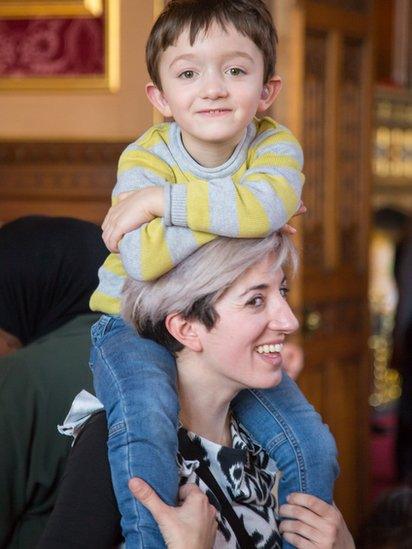
The National Deaf Children's Society estimates about 11,500 children live in 43 English council areas that do not fund the aids.
It says the situation has got better, with the number of councils providing them going up from 77 in 2016 to 109 now.
There are more than 45,000 deaf children in the UK altogether. In Northern Ireland, all children are entitled to home radio aids, while in Scotland and Wales most services do not offer them.
'Tipping point'
Jo Campion, from the NDCS says: "Thousands of young deaf children across the country are being thrown into a radio-aid lottery, where their chances of having one at home are based on their postcode, not on their needs.
"It's a tragic waste of potential and it's deeply unfair."
She added: "Radio aids boost a child's chances of picking up language, reduce the effect of background noise and help in situations where face-to-face conversations are difficult, like playing outside or travelling in the car."
But Anntoinette Bramble, chairwoman of the Local Government Association's Children and Young People Board, said: "The National Deaf Children's Society is wrong to suggest that councils have a duty to supply radio aids. However, as many as possible do so because they know that deafness can make life incredibly difficult for some children who experience it.
"Despite immense pressures and strains on councils and schools, they are doing all they can to help deaf and partially deaf children get the best start in life."
But she added: "Councils are reaching the point where the money is simply not there to keep up with demand, pushing support for children with Special Educational Needs and Disability to a tipping point."
- Published13 February 2019
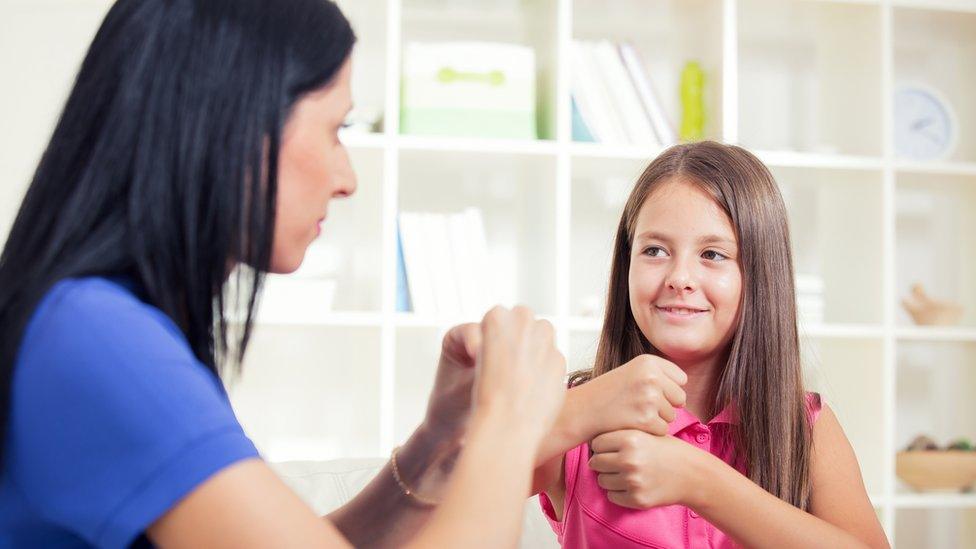
- Published4 February 2019
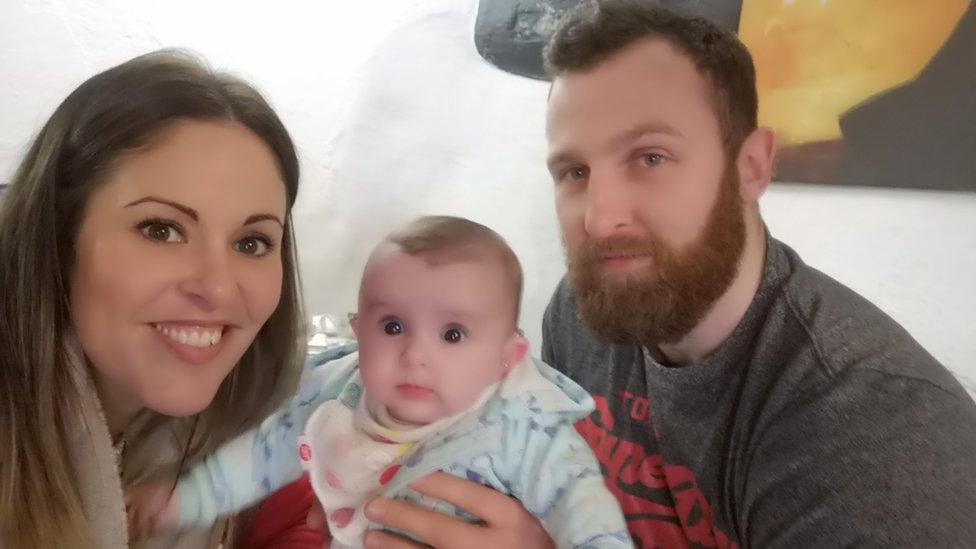
- Published8 January 2018
